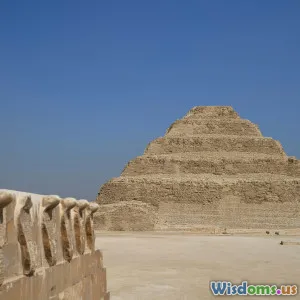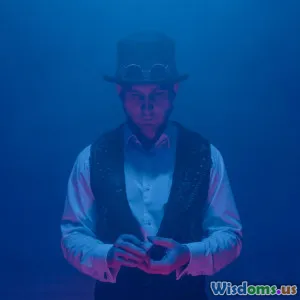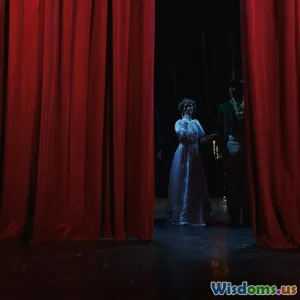
Magic in Ancient Civilizations
5 min read Explore the role of magic in ancient cultures and how it shaped beliefs, rituals, and entertainment across civilizations. (0 Reviews)
Magic in Ancient Civilizations
Magic has always held a captivating place in human history, serving as a bridge between the known and the unknown. Ancient civilizations across the globe embraced magic not merely as entertainment, but as a critical component of their cultural and spiritual lives. This article explores the role of magic in ancient societies, highlighting its influence on rituals, entertainment, and societal beliefs.
The Role of Magic in Ancient Egypt
In ancient Egypt, magic, known as 'heka', was intertwined with religion and medicine. Egyptians believed that magic was a divine force that could be harnessed to influence the world around them. Priests often performed rituals that included spells, amulets, and incantations to heal the sick, protect the dead, or ensure a good harvest.
For example, the Book of the Dead contains spells meant to guide the deceased through the afterlife, illustrating the significant role of magic in funeral practices. Amulets inscribed with protective spells were common, believed to ward off evil spirits and provide safety.
Mesopotamian Mysticism
In Mesopotamia, magic was associated with the gods and was deeply integrated into daily life. The Sumerians, Babylonians, and Assyrians utilized magic for various purposes, including agriculture, protection from enemies, and healing.
One significant aspect of Mesopotamian magic was the use of incantations and rituals to manipulate the environment or influence fate. Priests, known as asipu, would perform rituals that combined herbal medicine with magical practices, showcasing a blend of science and mysticism.
The Greeks and the Art of Illusion
The Greeks viewed magic in a more theatrical light. The famous philosopher Plato mentioned magicians in his writings, often associating them with deception and trickery. However, magic also had a legitimate presence in society.
The Greeks developed early forms of stage magic, where illusionists performed tricks to entertain audiences. Notable figures like Dedi, an Egyptian magician, reportedly performed feats such as cutting off and reattaching his own head. These performances laid the groundwork for the magic shows we know today, combining elements of storytelling, performance, and illusion.
Roman Superstitions and Performance
The Romans had a complex relationship with magic, often viewing it with a mix of awe and suspicion. Magic was frequently linked to superstitions and was used in rituals to invoke favor from the gods or to curse enemies.
The Romans also enjoyed theatrical performances, where magicians and illusionists showcased their skills. The Mundus Patet festival involved elaborate ceremonies that included magical acts to appease the spirits of the underworld.
Cultural Exchanges and the Spread of Magic
As civilizations interacted through trade and conquest, their magical practices influenced one another. The Silk Road, for example, was not only a trade route for goods but also for ideas and cultural practices, including magic. The blending of traditions resulted in new forms of magical practices, enriching the cultural tapestry of the ancient world.
Conclusion
Magic in ancient civilizations was far more than mere entertainment. It served as a vital component of spirituality, culture, and societal norms. From the divine rituals of Egypt to the theatrical performances of Greece and Rome, magic shaped the lives and beliefs of people, creating a legacy that continues to influence modern magic today. Understanding these ancient practices gives us insight into the human desire to understand and manipulate the forces of nature and fate, a desire that remains as strong as ever in contemporary society.
Magic, whether in rituals or entertainment, provides a glimpse into the psyche of ancient peoples, revealing their hopes, fears, and aspirations in a world filled with mystery and wonder.
Rate the Post
User Reviews
Popular Posts
















